Publications

CACTUS academic paper – “Understanding the gaps and addressing the potentials of energy sufficiency in “catching-up” European economies”
Academic paper published under the title “Understanding the gaps and addressing the potentials of energy sufficiency in “catching-up” European economies” and the leadership of Mahsa Bagheri at the 2022 edition of eceee’s Summer study. It details and discusses the research approach and major results of the CACTUS project on integrating sufficiency in Central and Eastern European climate strategies, with a focus on the transport sector.
Download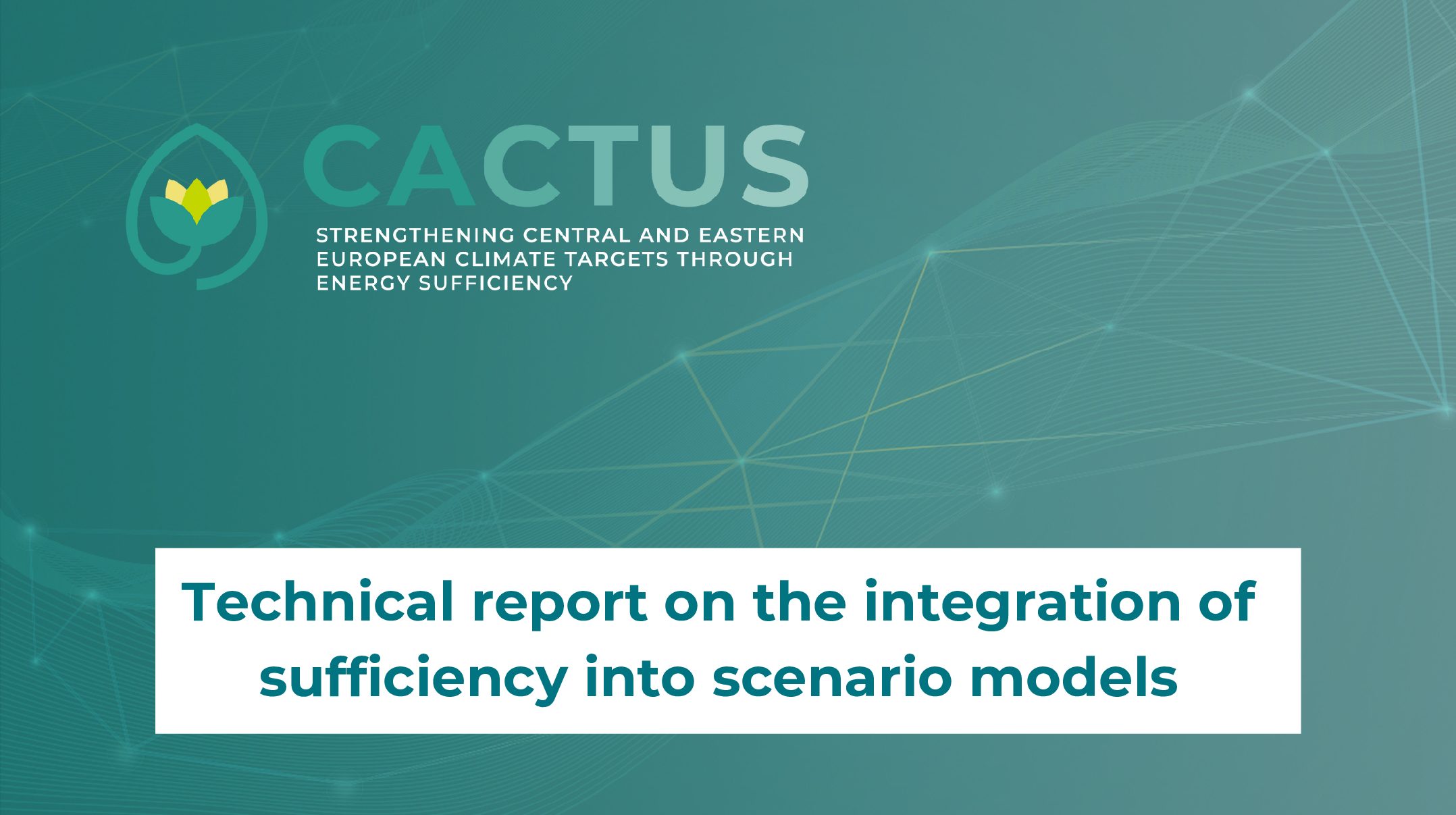
Technical report on the integration of sufficiency into scenario models
This report analyses existing models in target countries, TIMES in Hungary and MESSAGE Lithuania from the perspective of integrating sufficiency assumptions, identifying the potentials and barriers in the modelling approach.
In addition, the impacts of sufficiency and potential outputs of the models are discussed in this report, as well as an analysis of quantitative and qualitative effects of sufficiency and recommendations for the integration of sufficiency in general and the question of addressing non-quantifiable sufficiency impacts in particular.
Download
Presentation of CACTUS results for the buildings sector at EEDAL 2022
Presentation by Inga Konstantinaviciute at EEDAL-LS-2022International Conference on Energy Efficiency in Domestic & Light Sources with major CACTUS results for buildings.
Download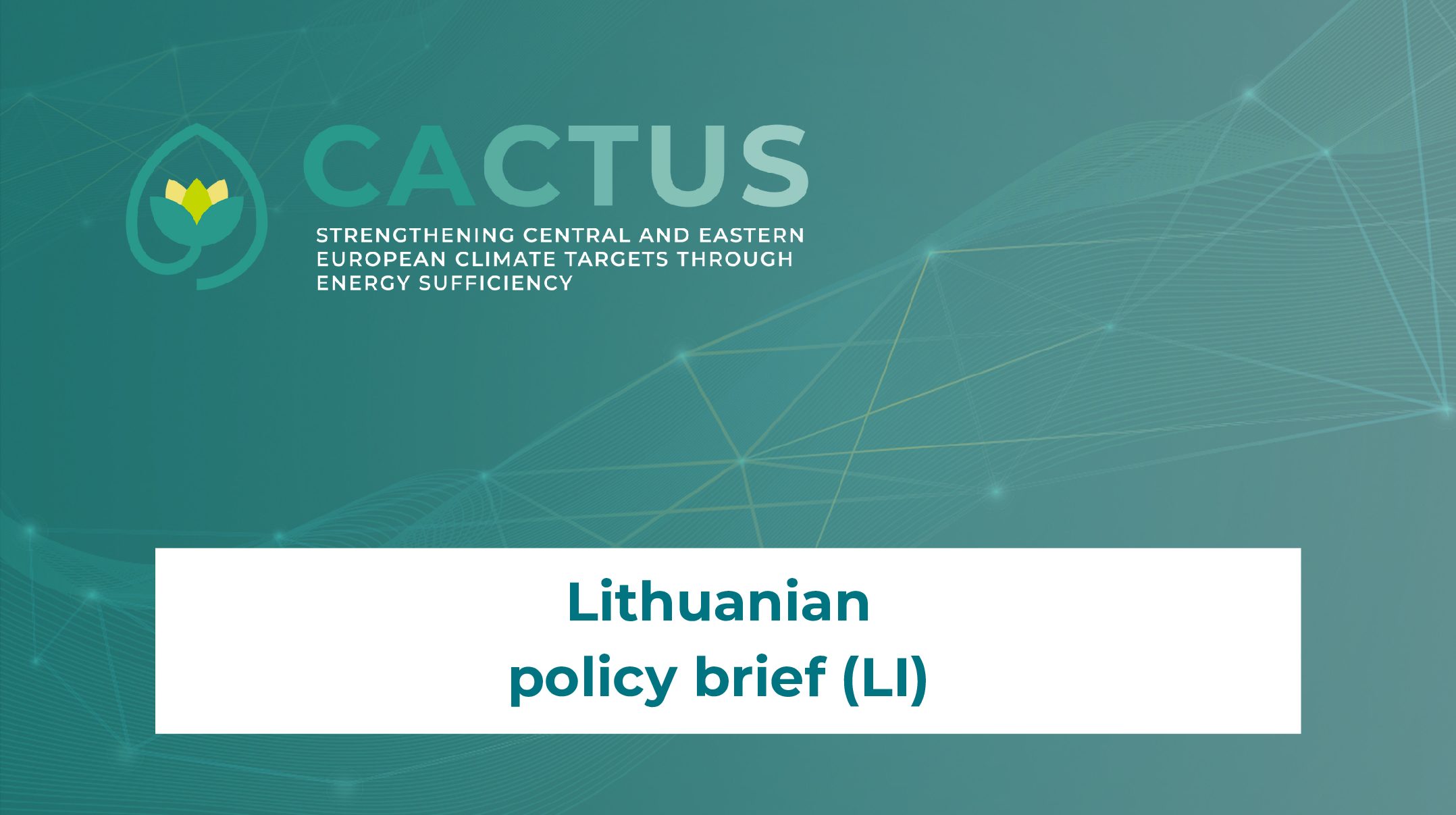
Lithuanian policy brief (Lithuanian)
This brief present major CACTUS results for Lithuania to policy makers : it analyses the sufficiency potential, proposes possible sufficient levels for 2050 tailored to the Lithuanian context, highlights policy options and best practices from other countries, and presents the results of initial model calculations showing the impact on related energy savings by 2050.
Download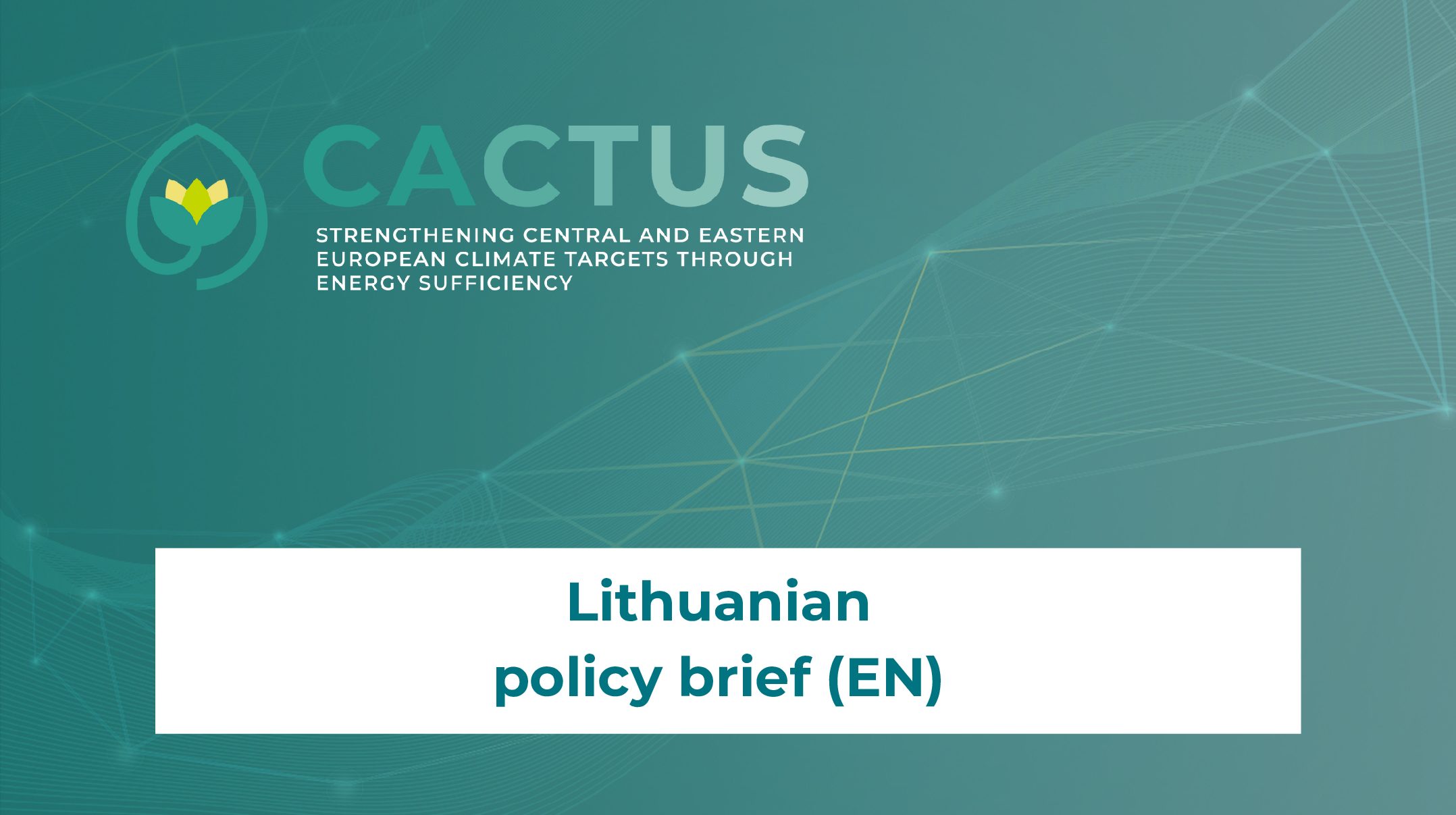
Lithuanian policy brief (English)
This brief present major CACTUS results for Lithuania to policy makers : it analyses the sufficiency potential, proposes possible sufficient levels for 2050 tailored to the Lithuanian context, highlights policy options and best practices from other countries, and presents the results of initial model calculations showing the impact on related energy savings by 2050.
Download
Hungarian policy brief (Hungarian)
This brief present major CACTUS results for Hungary to policy makers : it analyses the sufficiency potential, proposes possible sufficient levels for 2050 in the Hungarian context, highlights policy options and best practices from other countries, and presents the results of initial model calculations showing the impact on related energy and cost savings by 2050.
Download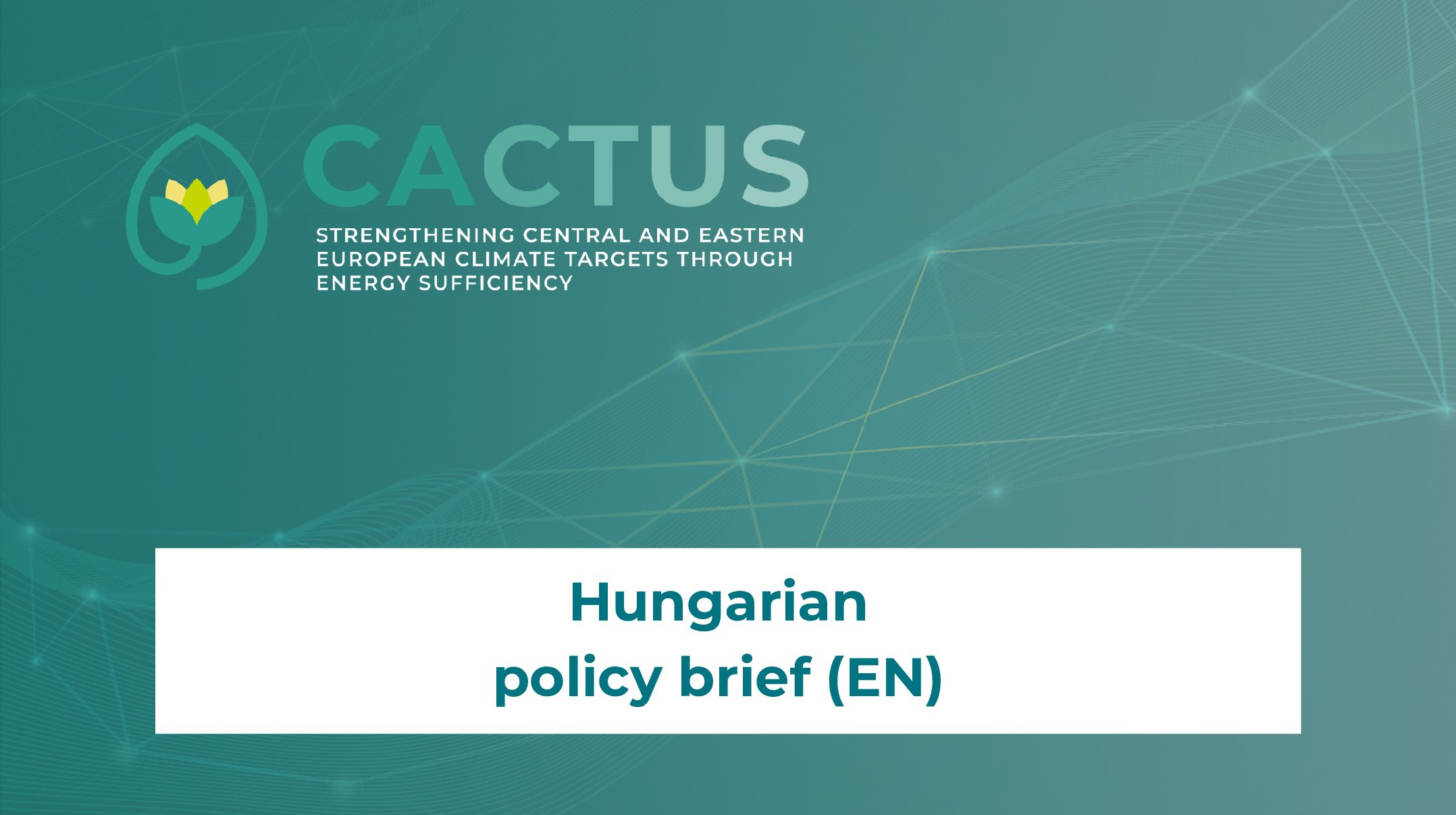
Hungarian policy brief (English)
This brief present major CACTUS results for Hungary to policy makers: it analyses the sufficiency potential, proposes possible sufficient levels for 2050 in the Hungarian context, highlights policy options and best practices from other countries, and presents the results of initial model calculations showing the impact on related energy and cost savings by 2050.
Download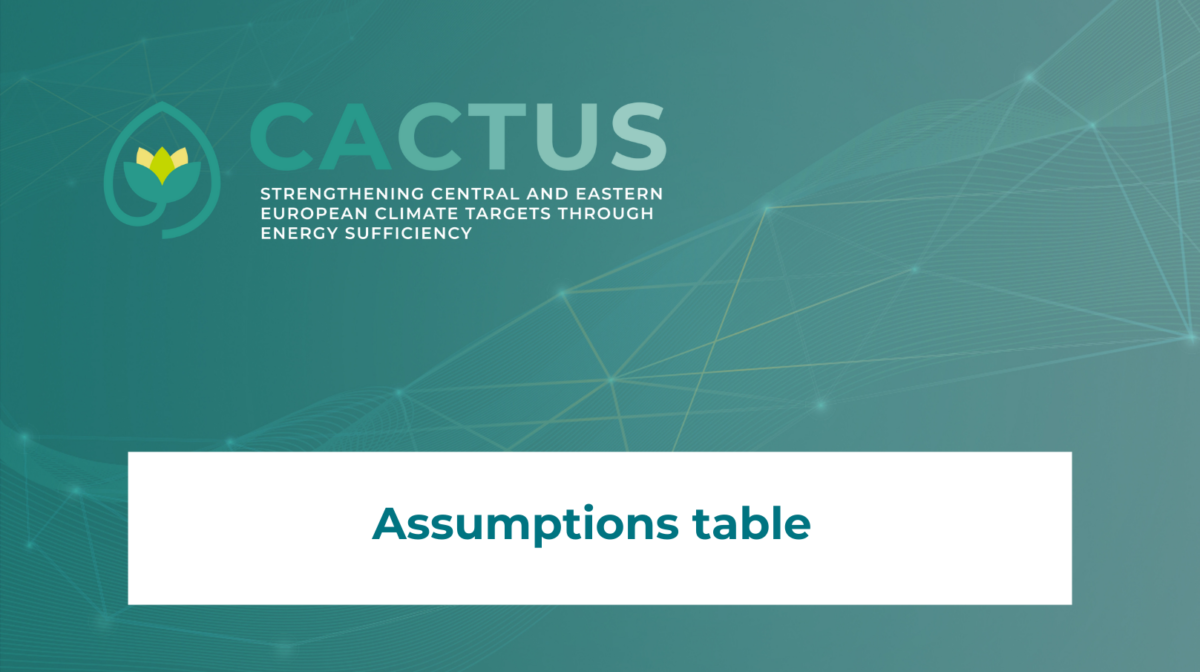
Assumptions table
The assumptions table gathers comprehensive information for building assumptions and sufficiency targets adapted to the Lithuanian and Hungarian context. Partners selected and prioritised up to 30 key sufficiency indicators from square meters per inhabitant or average households size for the buildings sector to traveled distance (passenger.km) by different modes of transport or number of people per vehicle for the mobility sector. Implementing partners gathered historical data for each indicator, and justified it with regards to the national socio-economic and cultural context. Sufficiency experts from négaWatt and independent expert Lukas Godé inserted theoretical sufficiency potentials for 2050 from literature, as well as 2050 potentials adapted to the French or German context in key sufficiency based scenarios such as the négaWatt scenario for France or Green Supreme from Rescue for Germany. On the basis of this research and the detailed exchanges in the assumptions workshop, partners from LEI and REKK could detail 2050 sufficiency targets for each indicator, and justify it in a “background column”.
Download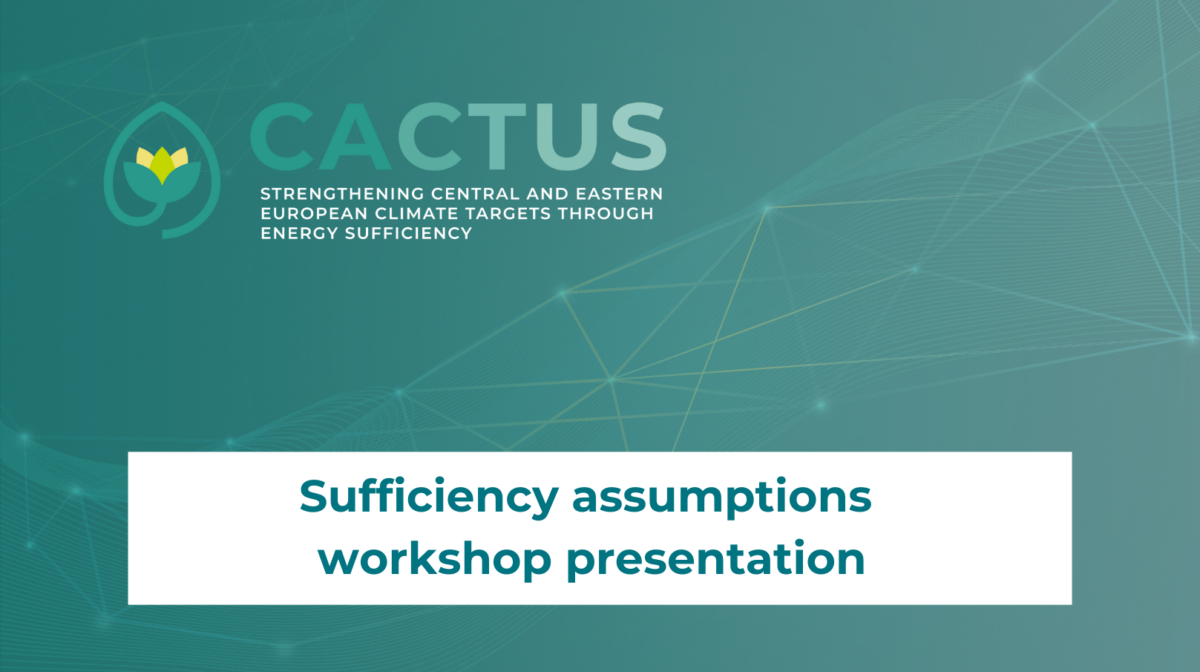
Sufficiency assumptions workshop presentation
The presentation from the assumptions workshop on 21 May 2021 entails key presentations from sufficiency experts from partner organisations on sufficiency assumptions building. It also contains partners’ proposals for potential targets and justifications on key sufficiency indicators such as square meters per inhabitant or average households size for the buildings sector, or traveled distance (passenger.km/capita) by different modes of transport or number of people per vehicle for the mobility sector.
Download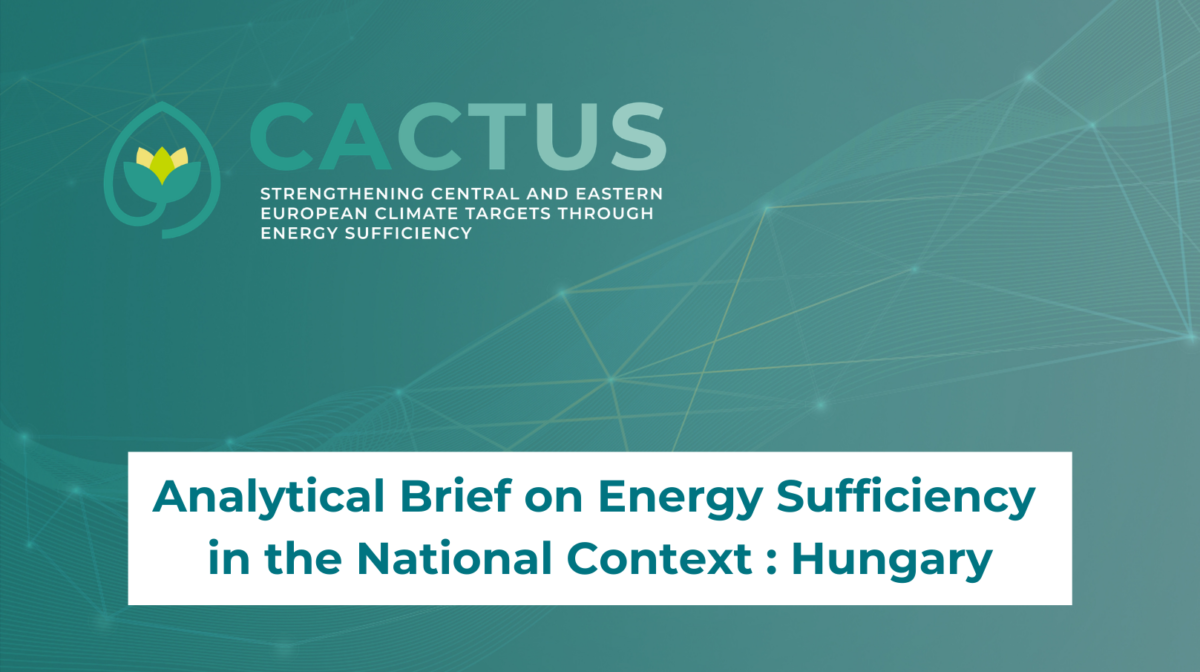
National analytical brief for Hungary
This analytical brief for Hungary is the starting point for the CACTUS project. It explores the energy sufficiency gap and potential for the buildings and transport sectors in light of the local energy and climate context. In the reports, experts from CACTUS national implementing partners REKK analyse the national legislative frameworks, socio-cultural barriers and enablers, as well as key indicators describing the energy demand, their evolution to date in comparison with EU trends. The briefs make first recommendations with a view to reaching more ambitious climate mitigation levels through sufficiency, and for the next steps of the project.
Download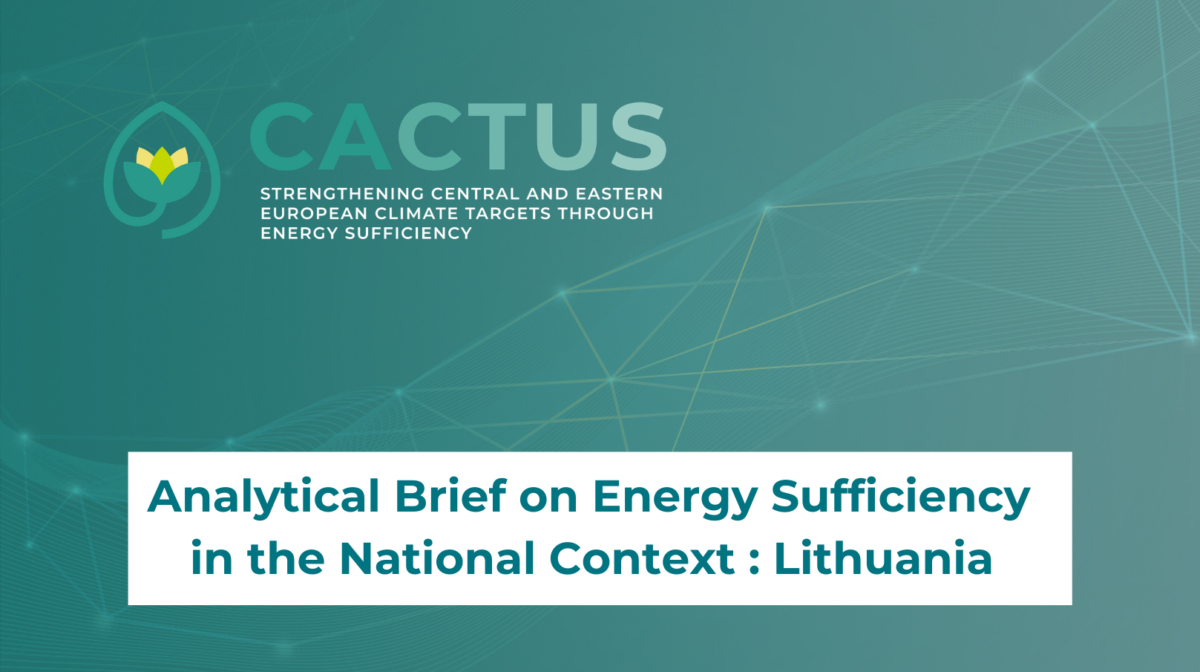
National analytical brief for Lithuania
This analytical brief for Lithuania is the starting point for the CACTUS project. It explores the energy sufficiency gap and potential for the buildings and transport sectors in light of the local energy and climate context. In the reports, experts from CACTUS national implementing partners LEI analyse the national legislative frameworks, socio-cultural barriers and enablers, as well as key indicators describing the energy demand, their evolution to date in comparison with EU trends. The briefs make first recommendations with a view to reaching more ambitious climate mitigation levels through sufficiency, and for the next steps of the project.
Download
Workshop presentation – October 2020
CACTUS technical activities began in October 2020 with a half day worshop gathering the partners of the project. The slideshow presented during this meeting is available below. More information on this meeting in the news section.
Download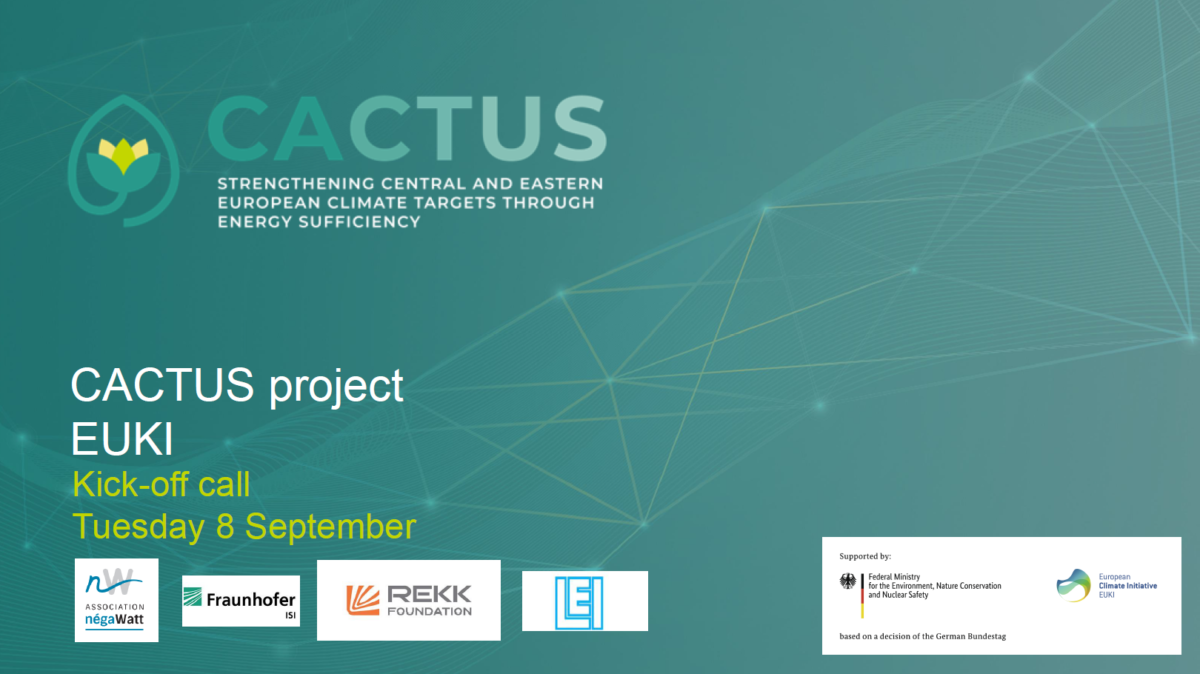
Presentation Kick off call – September 2020
This slideshow was presented during the kick off call of the Cactus project in September 2020.
In this presentation, negaWatt present key aspects of the project: political and socio-economical context, contractual obligations, timeline.
